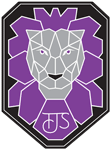TJS recognizes the importance of positive school culture and providing quality supports to students and staff. In addition to the Director, administrators, teachers, intervention specialists and many other school staff members, teams of specialized support personnel provide guidance to support students and remove barriers to learning. A positive school culture is vital for TJS to inspire all students to think critically, pursue their dreams and change the world. Below is a summary of the proactive approach used to create a welcoming environment and positive culture.
Positive Behavioral Interventions and Supports (PBIS): A Framework for All Schools
Positive Behavioral Interventions and Supports (PBIS) is an educational, preventive, and restorative approach to behavior. This approach helps TJS create and sustain effective and culturally-inclusive environments that support academic and social success for all students. TJS use PBIS to teach school-wide expectations to all students and recognize students who meet those expectations. Small group and individualized supports are also provided in this approach.
The following systems and practices are foundational to PBIS implementation:
- clear and consistent school-wide expectations that promote positive behavior. These expectations, which reflect the school community, values and culture, are defined, taught, modeled, reinforced and (when necessary) retaught.
- collect and use data (student and staff) to guide how they teach and reinforce the expectations for individual students, groups of students, whole classrooms and school-wide. Data is also used to identify students in need of additional support and match them to interventions and support.
- continually refines its systems and practices as needs change. The goal is to provide positive and equitable behavioral, social, and academic outcomes for all students.
TJS designs its own three-tiered system:
- Tier 1: All students learn the behavior expectations at school. Staff members teach, model and reinforce these expectations throughout the school year.
- Tier 2: Some students receive small-group interventions to practice the behavior taught in Tier 1.
- Tier 3: A few students receive individualized interventions and support.
At each tier, students learn and practice the social-emotional and behavioral skills they need to do well in school and throughout their lives. Supports provided at each tier involve the integration and alignment of practices, programs and supports listed on the next page.
Restorative Practices
Restorative Practices are ways for a school community to build relationships, problem solve and learn together. In this approach, relationships are the most important way we learn about the world and ourselves. A Restorative Practice school and community believe:
- Everyone in the school community is good, wise, and powerful.
- We are all connected to one another.
- All of us want to be in good, healthy relationships with others.
- We all have talents and gifts we bring to school.
- It takes time, habits and support to build and maintain positive relationships.
Social-Emotional Learning
Social and Emotional Learning is how children and adults learn how to manage emotions, set and achieve positive goals, feel and show empathy for others, establish and maintain positive relationships, and make responsible decisions. All work collaboratively to support social-emotional learning through HeartMath as well.
Mental Health and Wellness
Mental Health and Wellness refers to the continuum of emotional support available to students and staff. These supports strive to create a safe learning environment, maximize collaboration between students and adults, provide students with choices, create trusting relationships, and empower students to do their best.

